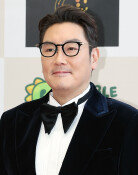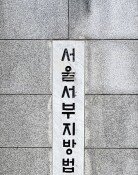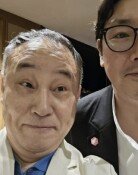China, Japan Seek Bigger Role in Asian Fund
China, Japan Seek Bigger Role in Asian Fund
Posted October. 11, 2008 06:08,
Strategy and Finance Minister Kang Man-soo will attend a meeting of G20 finance ministers, talks with the Japanese finance minister, and the annual meetings of the World Bank and International Monetary Fund in Washington Friday through Monday.
Attention is focused on if Asias top three economies -- Japan, China and Korea -- or Korea and the United States will agree to speed up efforts to tackle dollar liquidity.
Seoul recently proposed to a group of Asian countries expediting the creation of a fund worth 80 billion dollars to protect Asia from the global financial turmoil. China and Japan, however, have shown a lukewarm response to the idea.
Along with the Association of Southeast Asian Nations, Korea, Japan and China in May agreed to set up a foreign exchange pool of at least 80 billion dollars to respond to another regional financial crisis under a 20-80 burden division.
The problem is timing. Though Korea hopes to see tangible results before a meeting of Korean, Chinese and Japanese finance ministers in May next year, chances are slim because Beijing and Tokyo disagree over their roles.
Both are trying to make a greater contribution to gain a greater voice and power over the use of the fund.
China, which has the worlds largest foreign exchange holdings of 1.8 trillion dollars, says the contribution should be split based on each countrys foreign currency holdings.
Japan, which is second to China in foreign exchange holdings with one trillion dollars, insists the use of gross domestic product for determining the contribution.
In this regard, Kang said Korea will play the role of mediator at a news conference yesterday. The Chinese finance minister is not coming to the United States this time. But if necessary, I will visit China to see him in person, he said.
Kang will also explore the possibility of increasing the amount of the Asian fund.
Korea has sought to set up an international cooperation system because it believes the financial turmoil will not end quickly, even after it passes the critical month of October, and that this can be better overcome by a collective effort from countries.
The financial market was even more volatile the day after the IMF confirmed its bailout offer to Korea in 1997. Similarly, even after the passage of the financial bailout bill, the U.S. market will unavoidably remain in confusion until questions over how to implement the bailout plan are answered, Kang said.
Though we should focus on easing anxieties until the end of October, we should also prepare for a prolonged battle.
On a similar note, a growing number of private think tanks say Korea and the United States should create a bilateral cooperation system for liquidity. In a report, Samsung Economic Research Institute recommended building the won-dollar swap line between both countries central banks to receive short-term dollar liquidity from the Federal Reserve Board.
On the proposal, a Seoul official said, however, As the won is neither a hard currency nor a strong guarantee, it is unrealistic.
Business leaders of Korea and Japan, including Federation of Korean Industries Chairman Cho Suk-rae and Japan Business Federation (Keidanren) Chairman Fujio Mitarai, held the second Korea-Japan Business Summit Roundtable yesterday in Seoul. They focused on strengthening bilateral economic ties, such as building an industrial park in Korea for industrial parts and materials that Japanese investors have shown a strong interest in.
bae2150@donga.com







